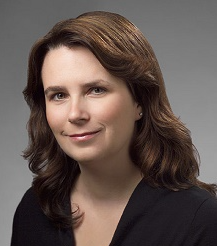 The enormity and severity of the West African Ebola epidemic that began in 2014 is hard to fathom. Over 10,000 people died with hundreds of thousands deeply affected by loss. In treating any medical condition, information is needed to provide adequate care, but when it’s an epidemic so severe, so dangerous and so fast-moving, it’s required more than ever. Ebola creates enormous barriers for patient care. It’s communicability means those who directly treat patients within the “Red Zone” must take extreme precautions. The lack of knowledge about who is infected and what constitutes effective treatment — not to mention the swift and severe toll it takes on the human body — makes caring for those affected extremely difficult...
The enormity and severity of the West African Ebola epidemic that began in 2014 is hard to fathom. Over 10,000 people died with hundreds of thousands deeply affected by loss. In treating any medical condition, information is needed to provide adequate care, but when it’s an epidemic so severe, so dangerous and so fast-moving, it’s required more than ever. Ebola creates enormous barriers for patient care. It’s communicability means those who directly treat patients within the “Red Zone” must take extreme precautions. The lack of knowledge about who is infected and what constitutes effective treatment — not to mention the swift and severe toll it takes on the human body — makes caring for those affected extremely difficult...
Kampala
See the following -
Feeding The Hungry, Or The Greedy?
As Uganda prepares to legalise GMO, supporters say it will save a farming industry gripped by epidemic blights, and help alleviate hunger and malnutrition. Opponents believe it is a neo-colonial conspiracy that connects the White House to billion-dollar multinational corporate greed.
- Login to post comments
Fighting Ebola with Open Source Collaboration
- Login to post comments
How A Free Mobile App Fights Ebola And Other Global Epidemics
 The enormity and severity of the West African Ebola epidemic that began in 2014 is hard to fathom. The outbreak resulted in more than 11,000 deaths, and hundreds of thousands of people affected by loss. Providing adequate care for any medical condition depends on information, but even more so when dealing with an epidemic that is as severe, dangerous, and fast-moving as Ebola. This is the story of how a dispersed global health IT community banded together to solve the enormous, unique information challenges presented by Ebola...
The enormity and severity of the West African Ebola epidemic that began in 2014 is hard to fathom. The outbreak resulted in more than 11,000 deaths, and hundreds of thousands of people affected by loss. Providing adequate care for any medical condition depends on information, but even more so when dealing with an epidemic that is as severe, dangerous, and fast-moving as Ebola. This is the story of how a dispersed global health IT community banded together to solve the enormous, unique information challenges presented by Ebola...
- Login to post comments
OpenMRS Community Launches Major Upgrade to its Open Source EHR Platform
 The OpenMRS Community has released a major upgrade to to its widely deployed open source EHR, OpenMRS. The result of the work of more than 100 OpenMRS Community Members from around the world the OpenMRS Platform 2.0 release is the first release of the 2.x family and takes a quantum leap in its base technology as it incorporates the latest web technologies and standards into its modular architecture. At the same time, OpenMRS retains the capability of supporting many legacy features.
The OpenMRS Community has released a major upgrade to to its widely deployed open source EHR, OpenMRS. The result of the work of more than 100 OpenMRS Community Members from around the world the OpenMRS Platform 2.0 release is the first release of the 2.x family and takes a quantum leap in its base technology as it incorporates the latest web technologies and standards into its modular architecture. At the same time, OpenMRS retains the capability of supporting many legacy features.
- Login to post comments
The First National Open Access Conference In Uganda
The Consortium of Uganda University Libraries (CUUL) in partnership with EIFL and the Regional Universities Forum for Capacity Building in Agriculture (RUFORUM) organised the first national conference on “Open access (OA), knowledge sharing and sustainable scholarly communication in Uganda” on May 21, 2013 at the Silver Springs Hotel, Kampala. Read More »
- Login to post comments
OpenMRS 2016 Implementers' Conference
The OpenMRS Implementers meetings began in 2006 as a way to bring members of the community together during a dedicated amount of time to collaborate, share implementation experiences, and find ways to improve OpenMRS. This year’s 2016 event is a blend of topics that include sessions covering traditional OpenMRS implementer as well as overarching OpenMRS topics. These sessions coincide with the planned as well as the unconference sessions. The meeting will provide an opportunity for health care team members, informaticians, developers, implementers, and end users to collaborate and innovate. As a result, developers improve their technical skills in OpenMRS, implementers share best practices from implementations, users and health care team members propose and prioritize their top features for future releases of the software to ensure that their needs are met.